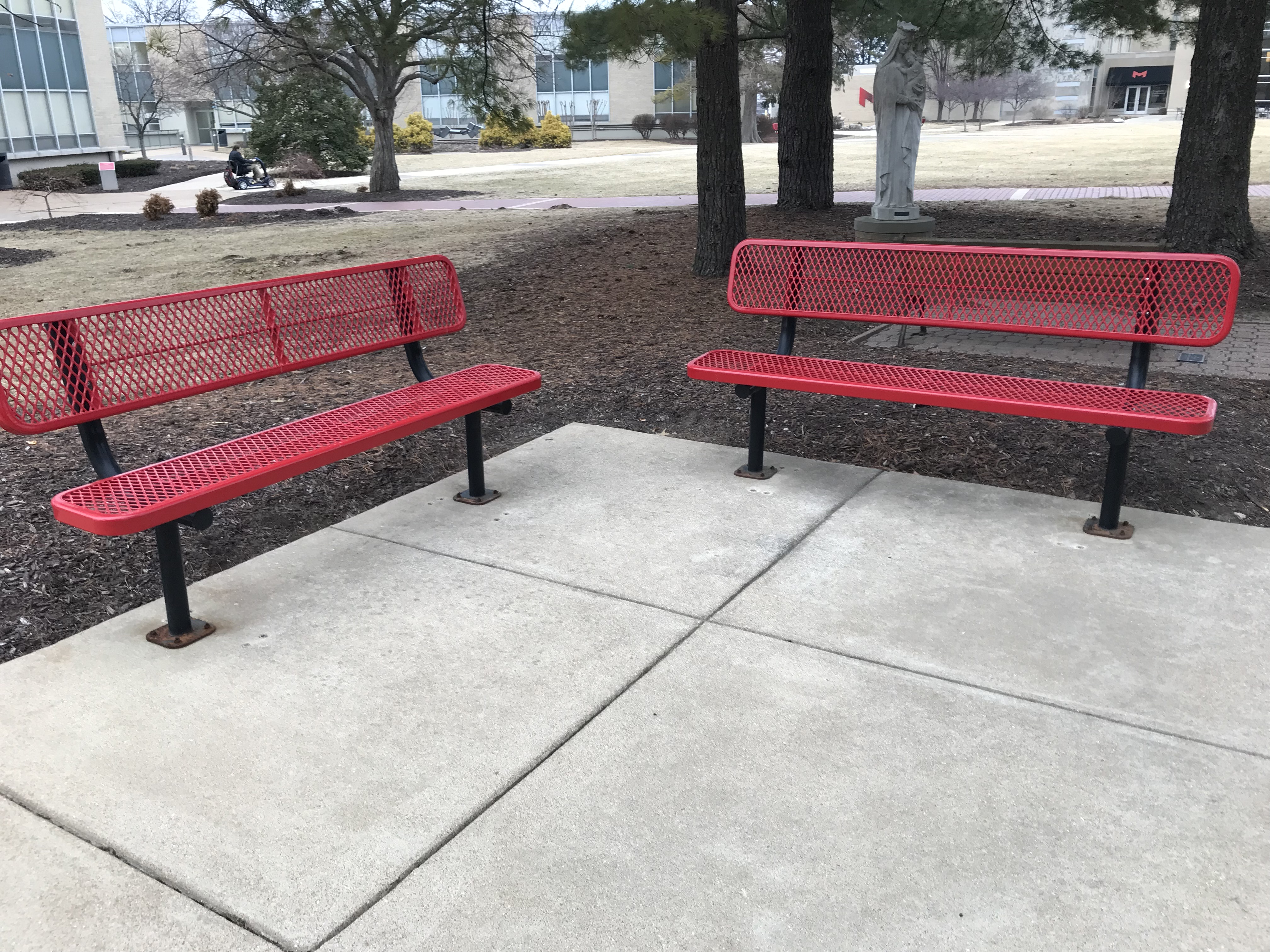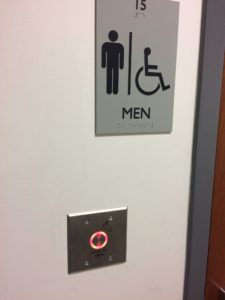

Maryville has been taking steps to improve the accessibility of the campus.
In the past, opening the bathroom doors at Maryville used to require two hands and a lot of patience. Students in a hurry or students with accessiblity issues found it to be a problem. This past winter, new accessible buttons for bathroom doors were installed across Maryville’s campus to fix the problem.
These are located in the men’s restrooms in Gander, the restroom in Kaldi’s and the restrooms in the Donius University Center. All of these complement the buttons already installed in the women’s restrooms in Gander.
Additionally, adult changing tables have been installed in Kaldi’s, with incontinence supplies being available at the nurse’s office.
They allow users to wave their hands in order to open a bathroom door, opposed to opening a door with one’s hands, which is what had been done before this upgrade.
According to Allison Fuller, the director of disability support and success at Maryville University, the student organization ABLE (Abolish Barriers to Leadership and Empowerment) had suggested new accessible doors on campus.
“A few of us met with our director of facilities to see when we could make that happen, so we’ve been working closely with them to make those changes,” Fuller said.
According to Fuller, to figure out which doors to alter, the facilities management team relied on which bathroom doors had gotten the most complaints from students. For example, if a student in a power chair had complained about the lack of an accessible door, that door was made a priority.
She also said she is particularly proud of ABLE for having helped make those changes possible.
In general, Fuller said, Maryville being a campus of inclusivity means that when something is pointed out that is, for whatever reason, not inclusive, the staff will quickly work to address it.
“The accessible doors are an example of how a need, when brought up, can be filled quickly,” Fuller said.
Christian Henry, a communication major, said while he had been able to grab doors before the installation of the accessible doors, he understands that for others, it can be harder.
Since the doors were added, however, he finds that he no longer has to roll directly up to the doors and stand in front of them, which he thinks is “cool.”
Henry said Maryville offers many accessible options. He mentioned the hallways are wide and most doors have sensors. Although, two or three classrooms, he said, lack “rolly chairs,” but they are exceptions.
While many steps are being taken, there is still work to be done regarding accessibility. Fuller said following this, her next hope is to add an accessible bench on the route to the library from Gander.
She said only one area allows students to stop and rest currently. Her hope is to have this project done by the summer.
While Henry was positive about Maryville’s accessibility overall, he said he would like to see all the accessible door buttons work. This is because sometimes they do not function properly.
If you find an automatic door is not working, email succeed@maryville.edu.






